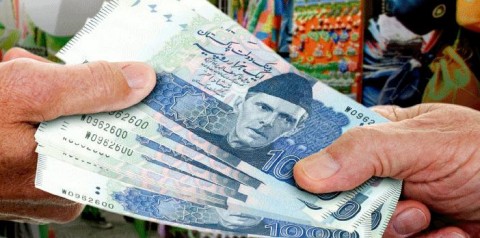
The way that IMF comes into countries with developing economies and uses crisis to dictate economic policy without regard to cultural and humanitarian realities deserves much of the criticism that the international finance organisation receives. Not all of IMF’s policy recommendations are bad ideas, though, and one recent policy that IMF is pressurising Pakistan to accept, addressing deficiencies related to anti-money laundering requirements, should be put into place as soon as possible.
Former Governor State Bank of Pakistan Syed Salim Raza says that these requirements also do no not understand the ground realities in Pakistan, but this is an excuse that highlights the problem more than it disqualifies the solution.
In Pakistan, most business is done in cash, not through bank transactions. This is harming national security in two ways. First way is through reducing the amount of revenue to the government because people quite simply lie about their assets and do not pay the proper amount of taxes. The lack of necessary revenue means that government cannot afford to fund important sectors like education.
Second way that the cash-based economy harms national security is through the funding of terrorist groups in the country. Prime Minister Nawaz Sharif has said recently that the country is a victim of foreign-funded terrorist groups. It is also well known that some militant groups receive funding from within Pakistan. Whether the money is foreign or Pakistani, however, it is carried out in cash to avoid detection through routine banking oversight.
Syed Salim Raza says that one reason anti-money laundering laws will not work is that limited number of Pakistanis have bank accounts. This is true, but it is something that can be changed as is proven by the introduction of CNICs which did not exist until recently either. Why not have similar system to allow electronic payments instead of cash payments? This would also reduce the chances for dacoits to rob and steal because less cash will be available.
With electronic payments system, overseas remittances could be deposited into a registered bank account and paid out in smaller increments instead of distributed immediately in cash. This would immediately inject billions into Pakistan’s banking system and also create new opportunities for ambitious young people to start new businesses to facilitate transfers and payments in areas where banking facilities are limited or missing.
Changing ground realities so that people are less inclined to use cash will not be an easy task. Whatever the challenges, though, the end result will be to close the ability for tax evaders, and to cut off the blood flow of money to terrorist groups whether the source is foreign or domestic. The American gangster Al Capone was considered untouchable for long because no court could convict him of his crimes including many murders. He was finally stopped because the American government changed its strategy and started to go after his funding. If our courts can not convict our own Al Capone’s, we should take the same strategy.
![]()





